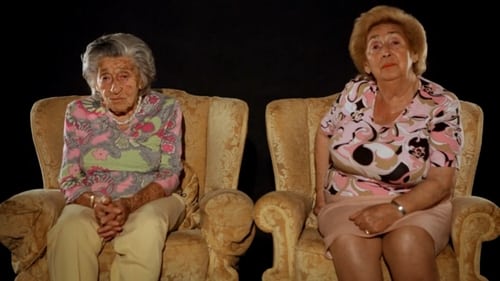Re-Emerging: The Jews of Nigeria (2013)
Gênero : Documentário
Runtime : 1H 33M
Director : Jeff L. Lieberman
Sinopse
Filmmaker Jeff Lieberman takes us on an unforgettable journey to Nigeria where the Igbo people, in researching their roots and history, find convincing cultural connections with Judaism. We are introduced to leaders of the community who maintain their Jewish beliefs and traditions with few resources. In a tormented country, where religious conflicts are a reality, the Igbo people are committed to perpetuating their legacy.

Made in Stalin’s Soviet Union, Professor Mamlock was one of the first films worldwide to tackle Nazi anti-Semitism openly. Based on a play by a German-Jewish exile in Moscow, Friedrich Wolf, and directed by an Austrian-Jewish exile in Moscow, Herbert Rappaport, the film tells with the story of an apolitical humanitarian Jewish doctor and his politically-aware, fascism-resisting son, an intern, as their lives become entangled with the Nazis’ rise to power in 1930s Germany, where they live and practice. Things come to a head when the Nazi organization takes control of their hospital, and place a rabid antisemitic physician in charge over Mamlock and his staff.

One of the strongest examples of Israeli cinematic storytelling in recent years. Zuhara is on her way to her younger sister’s wedding, when she picks up Neriman, a young Bedouin hitchhiker escaping from an arranged marriage. As she unintentionally becomes an accomplice in Neriman’s struggle, Zuhara must confront her conflicted feelings toward her estrangement from her own family. Director Rony Sasson Angel sensitively evokes moving drama through the characters’ quiet exchanges, while building to a powerful climax. Stars Hila Vidor and Maisa Abed Elhadi make the tension and camaraderie between these two strangers palpable and touching. A deeply-poignant and visually-striking road movie.

The first feature film produced in pre-state Israel. This newly-restored silent film tells the story of a boy from a Moshav who goes on a daytrip with his classmates and gets lost on the way, having adventures in the Jezreel Valley as well as encounters with Bedouins, an eccentric tourist and various animals. “Today, 78 years after its making,” Ha’aretz film critic Uri Klein wrote recently, “the major interest in watching the film stems from its attempt to deal with the conflict between the collective and the individual.” Upon its initial release, the film was praised by both the public and critics: "A cornerstone for the Hebrew cinema was laid yesterday," announced Doar Hayom after the film's premiere at Jerusalem's Zion Cinema. Released in the USA in 1934 as THE LOST COMRADE, with an added opening sequence and narration in English, as well as songs and snatches of dialogue in Hebrew.

A thought provoking and inspiring documentary of shared tragedy and the unexpected journey of an Israeli and a Palestinian. Bassam and Rami, each once a dedicated fighter for his cause, have been faced with similar tragic losses. Their grief results in a surprising friendship as they become peace activists, working together—former enemies, now brothers in a cause. Their ultimate message, delivered on the Israeli radio show they co-hosted, is “It won’t end if we don’t talk”.

Joe Papp, the founder of the New York Shakespeare Festival and, subsequently, The Public Theater—arguably the most important theatre in North America—is profiled in this documentary that neither sanctifies nor vilifies him. He brought us free Shakespeare in the Park, Hair and A Chorus Line, and nurtured many of America’s greatest playwrights, directors and actors. His complex personality and mercurial behavior are much in evidence and spoken of with frankness through interviews with some of America’s most celebrated artists, including Meryl Streep, Christopher Walken, Martin Sheen, Kevin Kline, and James Earl Jones.

With only eight Jewish men in Corsica, how does this community gather a Minyan (a quorum of 10 Jewish men required to practice certain religious ceremonies)? A portrait of this tiny Jewish community, fighting to survive on a small island, as they reflect on their past and how difficult it is to contemplate their Jewish future.

Oma & Bella is an intimate glimpse into the world of Regina Karolinski (Oma) and Bella Katz, two friends who live together in Berlin. Having survived the Holocaust and then stayed in Germany after the war, it is the food they cook together that they remember their childhoods, maintain a bond to each other and answer questions of heritage, memory and identity. As the film follows them through their daily lives, a portrait emerges of two women with a light sense of humor, vivid stories, and a deep fondness for good food. Created by Oma's granddaughter Alexa, the film captures their ongoing struggle to retain a part of their past while remaining very much engaged in the present.


